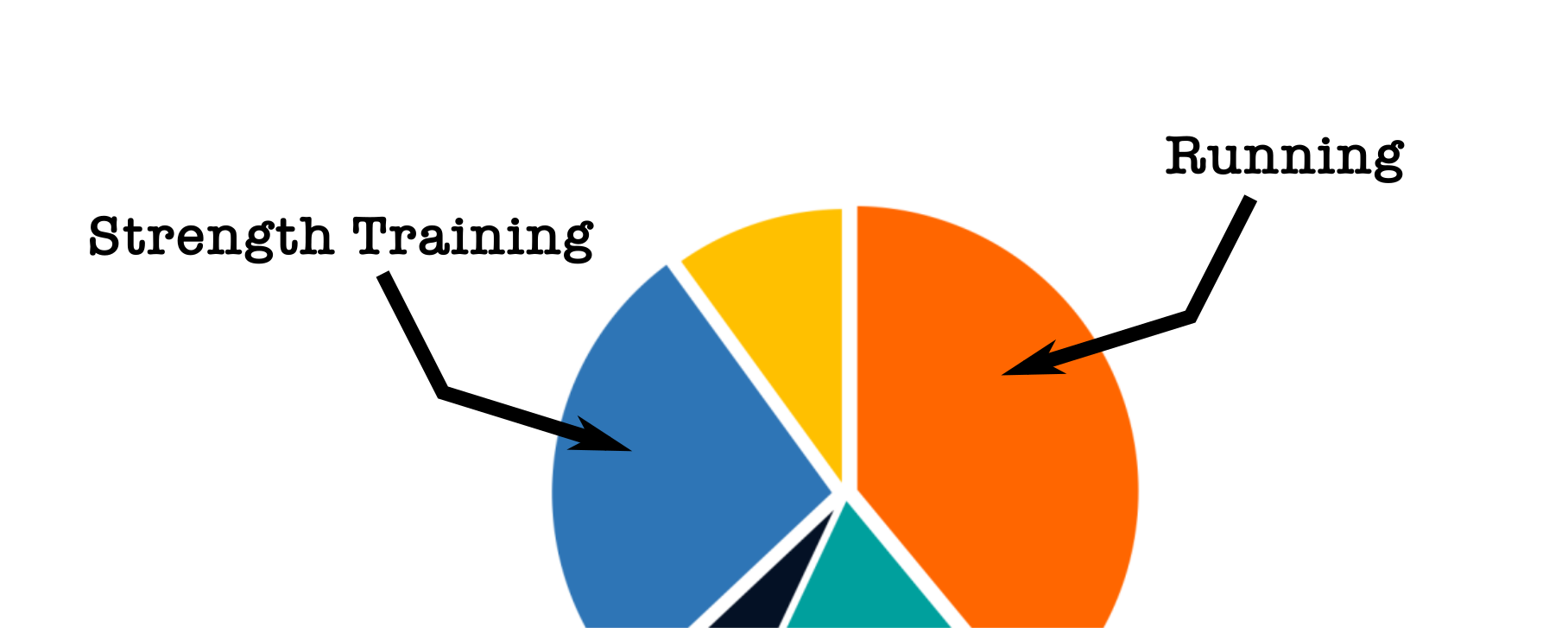How Often Do Marathon Runners Train
Marathon runners typically train on a regular basis, usually about 4 to 5 days per week. During training, they focus on building both endurance and speed, incorporating long runs, speed workouts, hill repeats, and recovery runs into their training schedules.
This consistent training allows them to prepare their bodies for the physical demands of running a marathon, improving their stamina, strength, and cardiovascular fitness. As they progress closer to the marathon date, their training volume and intensity may increase, but they also incorporate taper periods to allow for adequate rest and recovery before the race.
Overall, marathon runners understand the importance of consistent training to achieve their performance goals and ensure they are well-prepared for the race.

Credit: recoverathletics.com
The Importance Of Training
Physical Benefits
Training for a marathon ensures improved cardiovascular health and increased stamina.
- Enhances muscle strength
- Boosts endurance levels
- Helps maintain a healthy weight
Mental Preparation
Consistent training builds mental resilience and improves focus during the race.
- Enhances mental toughness
- Reduces stress and anxiety
- Boosts self-confidence

Credit: sprintrehab.com
Frequency Of Training Sessions
How often marathon runners train plays a crucial role in their preparation for the daunting 26.2-mile race. Consistency and proper training frequency are key factors that determine their performance on race day. Marathon training requires a significant commitment, both in terms of time and effort. In this article, we will discuss the recommended frequency of training sessions for marathon runners, focusing on their weekly training schedule and the importance of rest days.
Weekly Training Schedule
Marathon runners typically follow a structured training schedule, organizing their workouts throughout the week. The aim is to gradually increase their mileage and improve their endurance over time. Here is an example of a recommended weekly training schedule:
| Day | Training Activity |
|---|---|
| Monday | Easy run or cross-training |
| Tuesday | Intervals or speed work |
| Wednesday | Rest day or easy run |
| Thursday | Tempo run or hill repeats |
| Friday | Easy run or cross-training |
| Saturday | Long run |
| Sunday | Rest day |
This is just an example, and the actual training schedule may vary depending on individual preferences and goals. However, it is important to include a mix of easy runs, speed work, tempo runs, and long runs to develop the necessary strength and endurance for a marathon.
Rest Days
Rest days are just as important as the training sessions themselves. Taking regular rest days allows the body to recover and repair from the high impact of running, reducing the risk of overuse injuries and fatigue. It is recommended to have at least one or two rest days each week.
During rest days, marathon runners can focus on stretching, foam rolling, and other forms of active recovery to help enhance muscle repair and prevent stiffness. It is crucial not to underestimate the importance of rest in the training process.
To summarize, marathon runners should aim to train consistently and follow a structured weekly training schedule. However, it is equally important to incorporate rest days into their routine to allow for adequate recovery and prevent overtraining. By finding the right balance between training frequency and rest, marathon runners can optimize their performance and increase their chances of crossing the finish line strong on race day.
Variety In Training Regimens
When it comes to training for a marathon, variety is key. Marathon runners don’t just rely on long runs alone to prepare for the big race. They incorporate a mix of different training methods to improve their endurance, speed, and overall performance. In this post, we will explore three important aspects of marathon training: long runs, speed work, and cross training.
Long Runs
Long runs are a fundamental part of marathon training. These runs are typically done once a week and gradually increase in distance over time, helping runners build their endurance. During long runs, marathoners get accustomed to the physical and mental challenges they may face during the race. It also helps them gauge their pacing and fueling strategies.
When preparing for a marathon, runners usually start with shorter long runs, such as 10 miles, and progressively increase the mileage until they are comfortable running 20 to 22 miles. It’s important to note that the longest run is usually done a few weeks before the actual race, allowing runners enough time to recover and taper.
Speed Work
Speed work is another crucial component of marathon training. This type of training involves shorter, faster runs that target different energy systems and muscle groups. It helps marathon runners improve their speed, strength, and overall race performance.
Runners often incorporate various speed workouts into their training regimen, such as interval training, tempo runs, and hill repeats. Interval training involves alternating between high-intensity bursts of running and recovery periods. Tempo runs are sustained runs at a challenging pace, similar to marathon race pace. Hill repeats involve running up and down hills to build strength and power.
Cross Training
Cross training refers to activities other than running that complement a marathoner’s training routine. It helps prevent overuse injuries, improves overall fitness, and provides mental freshness. Additionally, cross training allows runners to target different muscle groups, which can enhance performance and reduce the risk of imbalances.
Common cross-training activities include cycling, swimming, strength training, yoga, and Pilates. These activities provide a low-impact alternative while still improving cardiovascular fitness, strength, flexibility, and balance. It’s recommended to include one to two cross-training sessions per week alongside running workouts.
Nutrition And Hydration
Marathon runners know the importance of proper nutrition and hydration to fuel their bodies during intense training sessions. Let’s delve into the essential elements of Nutrition and Hydration for marathon training.
Pre-training Fuel
Before hitting the track, marathon runners should consume a balanced meal rich in carbohydrates and proteins to sustain energy levels throughout their training. Include foods like whole grains, fruits, vegetables, and lean proteins.
Hydration During Training
Staying properly hydrated is key to peak performance. Marathon runners should drink water before, during, and after training sessions. Electrolyte-rich beverages can also help replenish essential minerals lost through sweat.
Recovery And Injury Prevention
Recovery and Injury Prevention play a crucial role in the training regimen of marathon runners. The intensity of marathon training can leave runners vulnerable to overuse injuries and fatigue, making it essential to incorporate proper recovery and injury prevention techniques into their routines. In this section, we will outline post-training routines and injury avoidance strategies that can help marathon runners stay on track and minimize the risk of injury.
Post-training Routines
After completing a demanding training session, marathon runners must focus on effective post-training routines to aid in the recovery process. This includes stretching, foam rolling, and low-impact exercises to promote muscle relaxation and reduce the risk of stiffness and injury. Incorporating hydration and nutritious meals rich in protein and carbohydrates is fundamental for replenishing energy levels and promoting tissue repair. Additionally, adequate rest and sleep are vital for allowing the body to recover and adapt to the training stress it has endured.
Injury Avoidance Strategies
Marathon runners should prioritize injury avoidance strategies as a proactive approach to maintain optimal physical condition. This involves assessing running form and footwear to ensure proper alignment and support, consequently reducing the risk of overuse injuries. Cross-training with activities like cycling or swimming can provide a break from repetitive impact while maintaining cardiovascular fitness. Furthermore, regular body maintenance such as massage therapy, chiropractic care, and physical therapy can aid in preventing chronic injuries and addressing any underlying imbalances.

Credit: www.rei.com
Frequently Asked Questions For How Often Do Marathon Runners Train
How Often Should You Train For A Marathon?
Train for a marathon at least 4 times a week. Include long runs, speed work, and recovery. Listen to your body.
What Is The Average Marathon Training Schedule?
The average marathon training schedule typically spans 16-20 weeks, with a mix of running, cross-training, and rest days. It gradually increases mileage and intensity to build endurance and minimize injury risks.
How Many Hours A Week Do You Train For A Marathon?
Most marathon training plans recommend 3-5 hours of running per week, with longer runs on weekends and shorter runs during the week. The exact amount of training will vary depending on your fitness level and goals.
Conclusion
To sum up, consistency is key for marathon training. Listen to your body, follow a structured plan, and gradually increase mileage. Remember, quality over quantity beats excessive training. Find the balance that works for you and enjoy the journey towards achieving your marathon goals.
Happy running!






